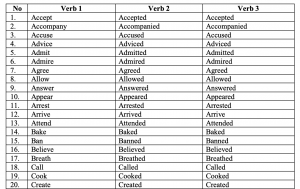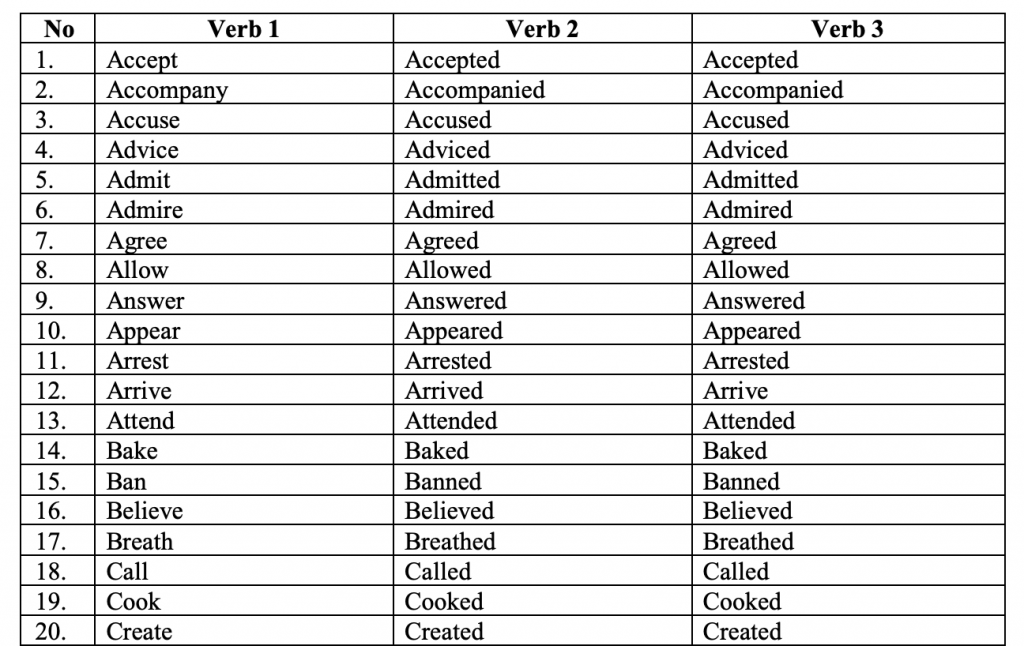Regular and Irregular Verbs (Grade A)
Summary:
Verbs are fundamental components of language that express actions, events, or states. They play a crucial role in constructing meaningful sentences. In English, verbs can be classified as either regular or irregular based on how they form their past tense and past participle. Understanding the distinction between these two categories is important for achieving grammatical accuracy and fluency in English communication.
Regular verbs follow a predictable pattern when forming their past tense and past participle. Typically, the past tense is formed by adding “-ed” to the base form of the verb, while the past participle is created by adding “-ed” or “-d.” For example, the verb “walk” becomes “walked” in the past tense and “walked” as the past participle. Regular verbs are consistent in their formation, making them easier to learn and use correctly.
On the other hand, irregular verbs do not adhere to a specific pattern when forming their past tense and past participle. Instead, they undergo internal changes in their spelling or pronunciation. These changes can be unpredictable and must be memorized individually. Examples of irregular verbs include “go” (went, gone), “eat” (ate, eaten), and “sing” (sang, sung). Irregular verbs add variety and complexity to the English language but require more effort to master due to their non-standard formations.
To effectively use regular and irregular verbs, one must familiarize oneself with their different forms. Regular verbs can be easily converted into past tense and past participle by applying the “-ed” rule. However, irregular verbs must be learned through memorization and practice. Many irregular verbs have unique forms, and it is crucial to use them correctly in different contexts.
To enhance proficiency, it is recommended to engage in regular practice activities that involve using regular and irregular verbs. This can include exercises, conversations, or written assignments where these verbs are incorporated appropriately. Additionally, referring to comprehensive verb lists or using language resources can aid in memorizing irregular verb forms.
Excerpt:
Regular and Irregular Verbs

Regular and Irregular Verbs


Reviews